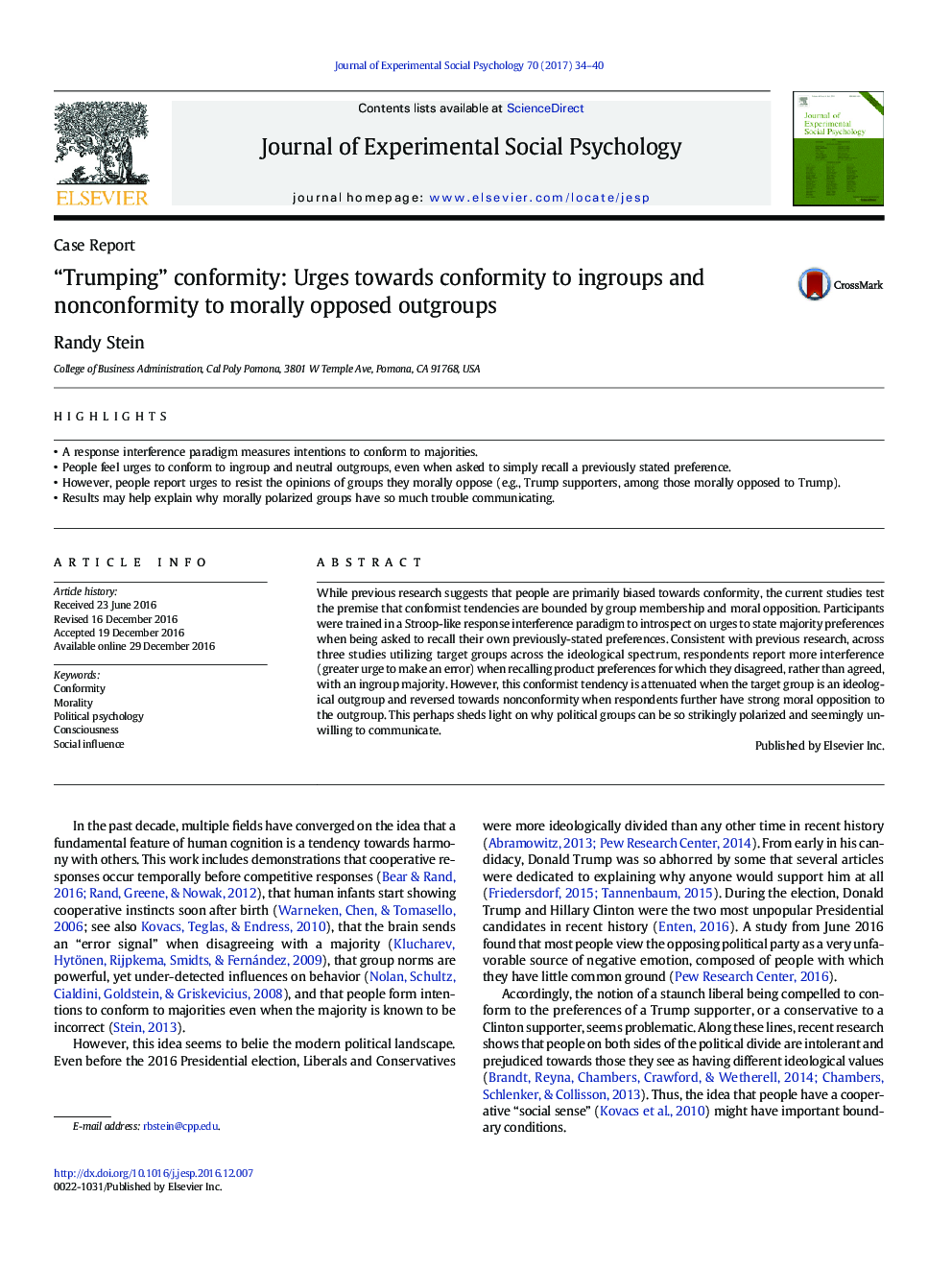| Article ID | Journal | Published Year | Pages | File Type |
|---|---|---|---|---|
| 5045652 | Journal of Experimental Social Psychology | 2017 | 7 Pages |
â¢A response interference paradigm measures intentions to conform to majorities.â¢People feel urges to conform to ingroup and neutral outgroups, even when asked to simply recall a previously stated preference.â¢However, people report urges to resist the opinions of groups they morally oppose (e.g., Trump supporters, among those morally opposed to Trump).â¢Results may help explain why morally polarized groups have so much trouble communicating.
While previous research suggests that people are primarily biased towards conformity, the current studies test the premise that conformist tendencies are bounded by group membership and moral opposition. Participants were trained in a Stroop-like response interference paradigm to introspect on urges to state majority preferences when being asked to recall their own previously-stated preferences. Consistent with previous research, across three studies utilizing target groups across the ideological spectrum, respondents report more interference (greater urge to make an error) when recalling product preferences for which they disagreed, rather than agreed, with an ingroup majority. However, this conformist tendency is attenuated when the target group is an ideological outgroup and reversed towards nonconformity when respondents further have strong moral opposition to the outgroup. This perhaps sheds light on why political groups can be so strikingly polarized and seemingly unwilling to communicate.
